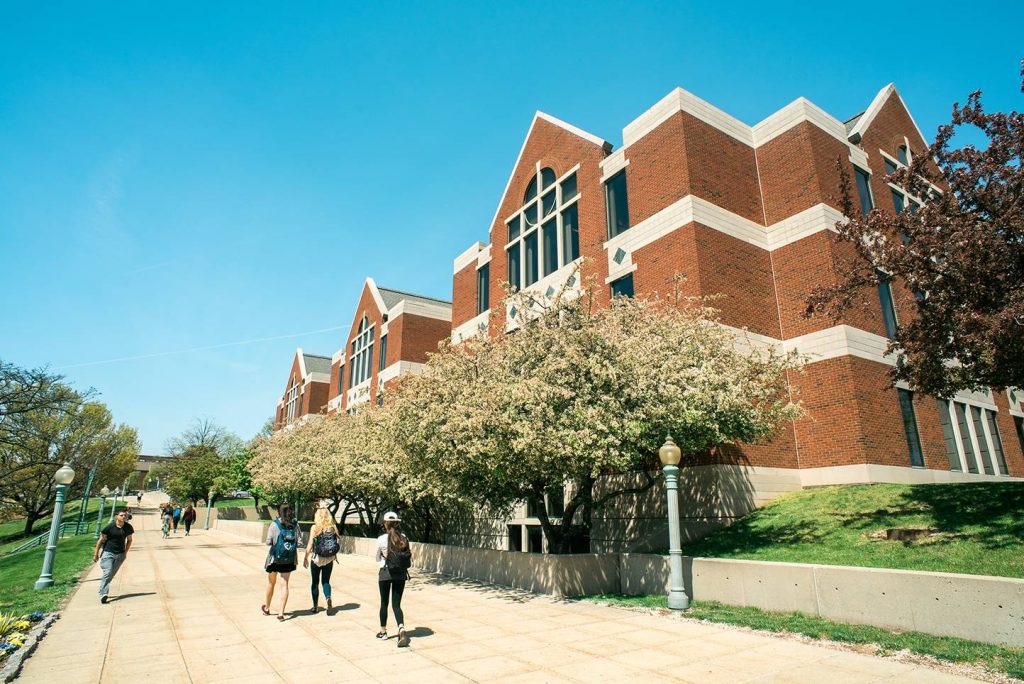Admissions Tip: How to Reapply to Business School

Consulting expert Alex Brown from Clear Admit recently offered up four incredibly valuable tips for potential students who want to reapply for a business degree, which you can read below.
With many MBA programs getting close to being ready to release their final round decisions, the application season will soon be coming to a close. While we would like to hope that today’s topic isn’t apropos for too many of our readers, we wanted to offer some advice to applicants who’ve been rejected from their preferred programs and are planning on reapplying next season. While it’s important to take some time to deal with the disappointment, it’s never too early to begin thinking about the next season, and there are a number of steps you can take to improve your candidacy and move toward a stronger application.
Reevaluate.
While it’s certainly difficult when things don’t go as planned, this is actually a great chance to take stock of your career and goals and to make sure that an MBA is still a logical and necessary step at this point. It’s this sort of reflection that can lead to refined career goals and a clearer sense of the reasons you need a business education.
Revisit your applications.
Once you’ve gained some distance from the emotional and time-consuming application process, it’s wise to review the materials you submitted to the schools with a critical eye. Having learned much about the process simply by applying, it’s likely that you’ll be able to identify a number of things that you could have done better. Whether you suspect your downfall was something like a strategic misstep in an essay or interview or a more glaring weakness like a low GMAT or lack of extracurricular involvement, there is plenty of time to address your shortcomings before submitting an application next year.
Consider your data points.
Your results this year may reflect some valuable information about your competitiveness at a top program. It’s important that you only apply to schools that you would be happy attending, but if you were unsuccessful at all of the programs to which you applied, it might be time to think about how realistic your list of target schools was and to add a few more to the mix. This is especially true for applicants who only applied to one or two programs this time around; there is an element of randomness and luck in the admissions process, and no matter how qualified the applicant, we recommend that a candidate target four to six programs to have a strong chance of success.
Schedule a feedback session, if applicable.
While it’s possible that you’ve identified your weaknesses in retrospect or even were aware of them when you went into the process, if you’ve been denied by a school that offers feedback to applicants and are planning on reapplying, you should absolutely take advantage of this opportunity to learn of the adcom’s perspective and demonstrate your commitment to the program. In fact, reapplying without seeking feedback when offered can raise questions for the adcom about how seriously an applicant is taking the process and the school. Of course, some schools do not offer feedback to anyone and others, such as Tuck, selectively offer feedback only to particularly promising candidates. There is naturally high demand for this service at programs that provide slots on a first-come, first-served basis, so it’s important that you make a point of requesting a feedback session at the earliest possible time.
Philly’s Fastest MBA Programs

You’re education is important—but so is your time. And for those looking to earn an MBA to accelerate their job growth or fast track their careers, the faster you can earn that degree the faster you can get back to earning money and making an impact in your field.
Most business schools offer a variety of MBA programs for students to choose from, allowing everyone from recent graduates to experienced executives the flexibility to choose a program that best fits into their life and schedule. For driven students who just can’t wait to reap the benefits of their MBA, many schools offer accelerated or One Year MBA programs that shortens the traditional length of time it would take to earn an MBA. While the curriculum can be rigorous, the programs give students the chance to quickly earn their degree, both minimizing the amount of money spent on classes and the income lost from not working full time.
In Philadelphia, there are a number of programs that allow you to go from applicant to degree holder in as little as twelve months. And since a 2017 study ranked Philadelphia as one of the five most-improved economic cities in the U.S., you won’t want to miss your chance to reap the benefits of this economic boom with your degree in hand.
The Fastest Philadelphia MBA Programs
Fox School of Business – Temple University
The Temple University Fox School of Business Executive MBA is one of Philadelphia’s quickest and most flexible MBA degrees. The program takes place over the course of 16 months, with classes delivered on one three-day weekend per month. The program is designed for experienced professionals who want to pursue their degree without giving up their career, and is constructed to accommodate a full-time work schedule.
For those looking for a quick MBA without the ten or more years of work experience an EMBA requires, Temple Fox’s Online MBA can be earned in just 20 months. Outside of one week-long residency at the start of the program, the digital aspect of this degree gives students not just time flexibility but also location. After the residency, this program can be pursued from pretty much anywhere!
LaSalle University School of Business
The School of Business at LaSalle University offers a One-Year MBA program for students with undergraduate experience in business. Knowing that important business pre-requisites for the degree are already out of the way, students can jump right in and earn their MBA in as little as 12 months.
The AACSB accredited One-Year program is an intensive degree program that requires students to take a full course load for the fall and spring semester as well as working through a winter intersession and summer semester. Students in this program also have the opportunity to specialize their degrees in the fields of accounting or finance, and will help prepare graduates to take the CPA and CFA exams by the end of the year. Students will also be paired with an academic adviser throughout the year who will help plan for their future careers. And the success of past graduates of the One-Year MBA program seems pretty clear, joining major companies like Deloitte LP, KPMG, PwC, and JP Morgan Chase, among others.

The La Salle One-Year MBA is among the fastest MBAs you can earn in any major East Coast city.
Haub School of Business – Saint Joseph’s University
The MBA at Saint Joseph University’s Haub School of Business can be completed in as little as one year for students who meet certain undergraduate requirements. Students can pursue this degree in a variety of ways, whether on campus or online, and whether full or part-time. Regardless of format, the MBA at Haub gives students the option to choose major for their degree, among high-demand disciplines like marketing, data intelligence, finance, international business and more.
The overall data which shows that those with an MBA earn more and have more career opportunities most certainly rings true for graduates of Haub’s MBA program. Nearly 76 percent of graduates said their SJU MBA helped their career advance, and 73 percent reported a salary increase as a result of their graduation. With the chance to limit the time of an SJU MBA to just 12 months, students can work their way to these benefits even faster.
Lehigh University College of Business and Economics
The 1-MBA at the Lehigh University College of Business and Economics is a full-time, one year MBA program designed for professionals looking to either accelerate their career or looking to change careers and move towards a business-related field. The rigorous program, which is located all on campus, cuts the time it takes to pursue a traditional Lehigh MBA in half.
Unique benefits of the 1-MBA at Lehigh include a team of mentors and coaches assigned to students even before they arrive on campus, including a faculty adviser, industry mentor and career coach who will help guide students through their year-long program. The program is also centered around a consulting practicum, which both trains students in practical skills for consulting and provides hands-on experience in the field. The 1-MBA program also focuses intensely on the professional development of every student in the program, offering personalized coaching and global immersion study opportunities that can help shape and prepare students for future business success.
